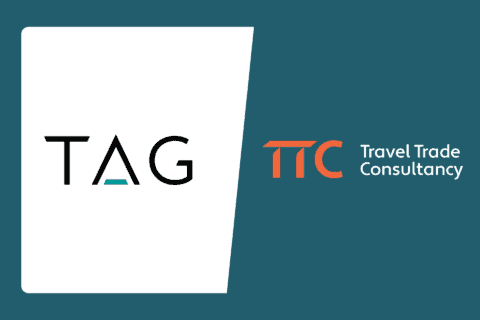Yesterday, we shared an interactive graph showing the movement of the top 20 ATOL holders from 2013-2020. We also gave some initial insights extracted from our deep dive into the data.
Over the next couple of weeks, we will be drilling down into these insights.
Firstly, we’re exploring the rise of online travel agents.
Over the past eight years, we have seen the rapid rise of online travel agents (OTAs).
They are built on slick, scaleable technology, selling primarily ‘fly and flop’ holidays and allowing customers to dynamically package a wide range of low-cost carrier flights and accommodation offers.
By October 2020, six of the top 20 ATOL holders could be classed as OTAs, where online distribution is their dominant channel as well as their key characteristic. Given the business model barely existed a decade ago, their growth rate has been phenomenal. For example, the largest UK OTA, On the Beach increased its ATOL from 639,000 passengers in 2013 to 1.65 million by 2019, a compound annual growth rate (“CAGR”) of 17%.
Loveholidays, a prominent PE-backed OTA grew from just 167,000 pax in 2015 to 1.37 million in 2019, a staggering CAGR of 69%!
Faced with the onset of the pandemic, both businesses reduced their licence projections by around a fifth as the UK went into the first lockdown in March 2020. However, this was far less than the market as a whole which is down 33%.
Will online travel agents continue to grow? To answer this question, we have to look at how consumer spending habits have changed as a result of the pandemic.
How has Covid-19 changed consumer spending?
UK consumers continued to spend money in spite of the pandemic. However, the closure of shops and restrictions on mobility drove an unprecedented shift to online channels over the past eight months.
Data from the Office of National Statistics (ONS)* shows that over the past decade, consumers have been shifting online at a rate of around 1% per year. This leapt 9% in the 12 months to September 2020.
Sadly, travel spending was a negligible proportion in the last eight months, but it is clear that consumers are far more comfortable transacting online than they were pre-pandemic.
In addition, a recent study from McKinsey indicated that the shift online transcends demographics, with older and historically more-technophobic generations turning to online purchases to ease the boredom of lockdown.
So the prospects look great for OTAs post-pandemic?
Not so fast! COVID-19 has been indiscriminate in its devastation of the outbound travel sector and OTAs have had as tough a time as any. Their technology has been unable to cope with huge numbers of cancellations, forcing them into laborious manual refunding processes. On top of this, the OTAs have been disproportionately affected by the delayed refunds from the low-cost airlines, resulting in customers receiving only part of their money back.
Without a strong human relationship to fall back on, they have been roundly condemned in the consumer media. For example, On the Beach, loveholidays, lastminute.com and Travel Republic, all score poorly in this Money Saving Expert ‘70 best and worst firms for travel refunds‘ list.
Incidentally, the report named Trailfinders and Travel Counsellors as the top two. Both are businesses where human interaction powers the vast majority of distribution.
It’s all to play for.
Going forward, we think travel will remain complicated for the foreseeable future. We expect travel restrictions to remain inconsistent, corridors to remain dynamic and testing and quarantine requirements to differ country by country.
In this environment, it’s easy to imagine customers returning to service-led, knowledgeable, human travel professionals. This Advantage Travel Partnership study in October 2020 appeared to support this theory. 44% of 25-34-year-old respondents said they are likely to consider using a travel agent in future.
At the same time, we know consumers have notoriously short memories. Customers at the value end of the market can always be enticed by bargain prices, leaving plenty of room for OTAs to recover when the great refund crisis fades from memory.
However, we think the biggest opportunity is change itself. That same Mckinsey study reported unprecedented levels of customer habit changes over the past eight months, with over 63% of UK respondents reporting switching to a new brand, new service or new retail outlet for the first time.
In that kind of environment, it’s all to play for.
If you enjoyed this post, why not sign-up to our newsletter? Get our latest travel blog posts, industry updates and exclusive content. Join the mailing list below.



